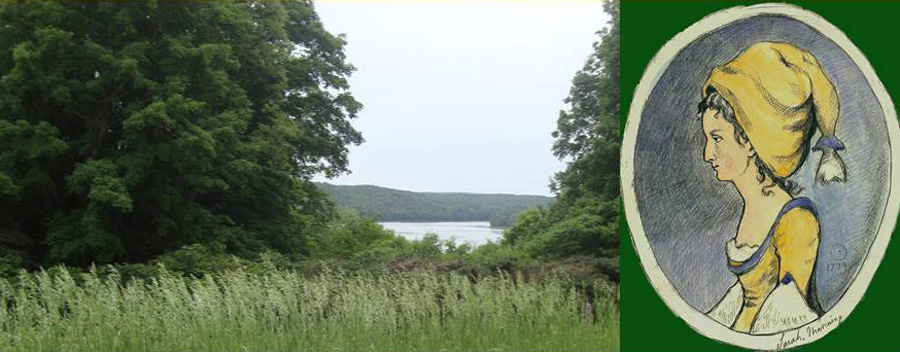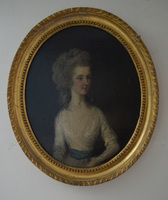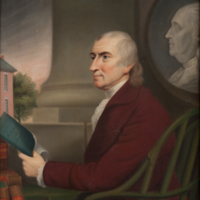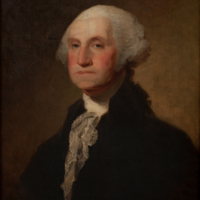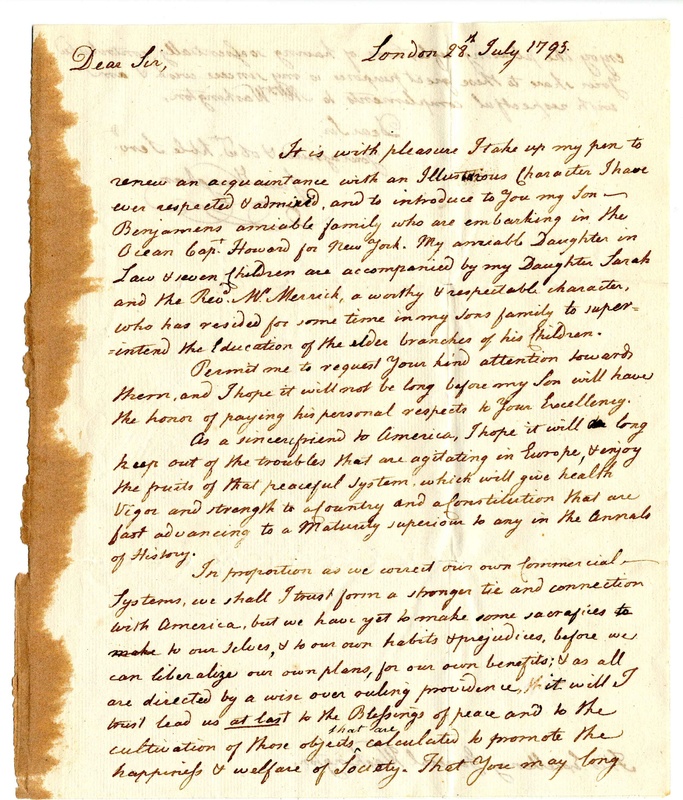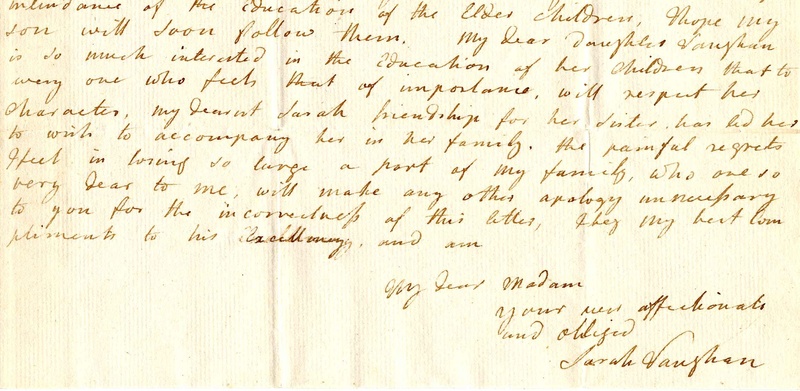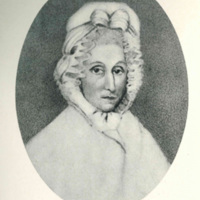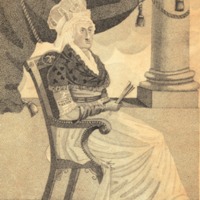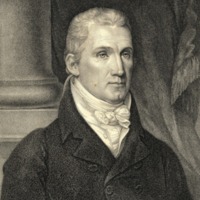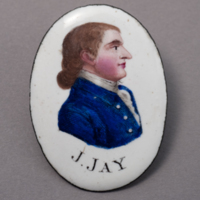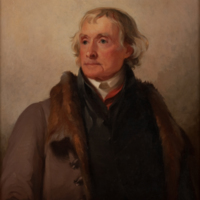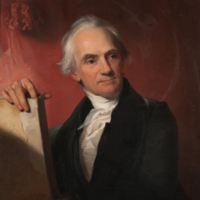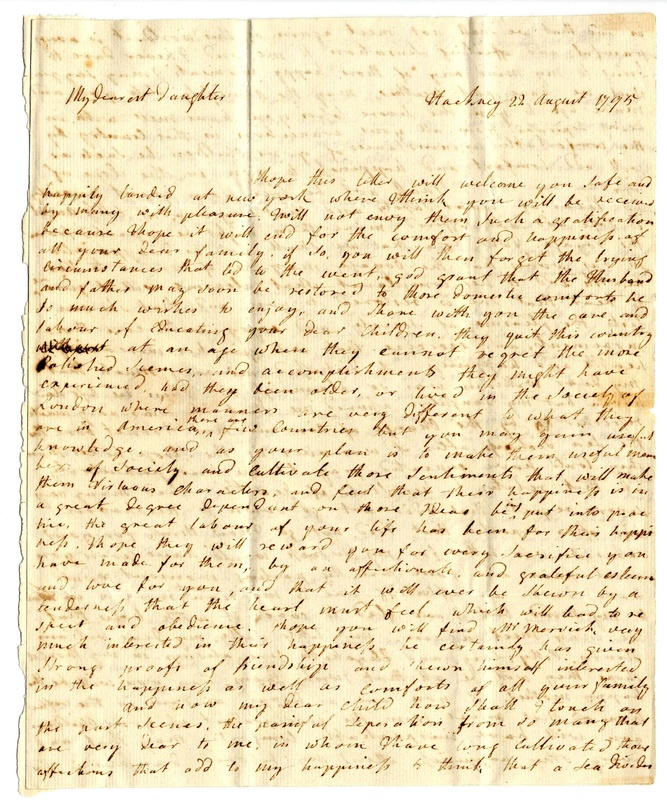Letters of Introduction
"...god grant that the Husband and father may soon be restored to those domestic comforts he so much wishes to enjoy, and share with you the care and labour of educating your dear Children..."
Letter from Sarah Hallowell Vaughan to Sarah Manning Vaughan, 22 August 1795
It is hard to imagine just how distraught Sarah Manning Vaughan must have been at her husband's disappearance, left with seven children, the youngest of whom were infants and the eldest frequently ill. Letters in the APS collection show how the Vaughan and Manning families and their closest friends, such as the Marquess of Lansdowne, rallied to her support. Upon hearing of her husband's disappearance, Lansdowne wrote to Sarah:
...you may rest perfectly assured, that I shall always consider your family like my own, and that it would give the most heart-felt satisfaction, if I knew how to alleviate your distress of mind. It requires all your firmness, and you must be sensible of the good you are doing your family, whose future welfare depend upon your health and resolution...
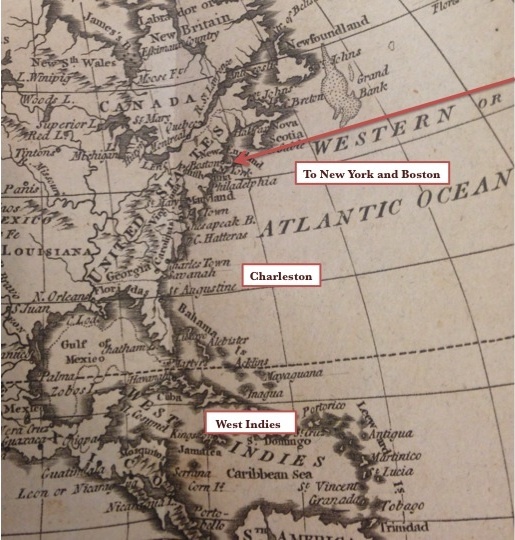
Detail from map of 1788 in Juvenile Magazine shows the trip Sarah and her family took to New York and on to Boston in 1795. To the South was Charleston, where the Manning family had close acquaintances, and, even further south, lay the West Indies, where Benjamin's brother Samuel, Jr., continued to maintain the family's sugar plantations.
When Benjamin finally made contact with Sarah in 1795, they agreed that she should travel on to America with the children and await his arrival there. On August 7, 1795, she set sail for New York with all seven children, four maids, her sister-in-law Sarah (or Sally), and the tutor of her eldest children, a Dissenting minister by the name of John Merrick.
In a letter from Sir Samuel Romilly (1757-1818), legal reformer and family friend, dated 31 December 1795, we get an inkling of what this voyage must have been like:
You speak of having encountered a tremendous storm, of having had loaded guns fired at your ship and of arriving at a town where the yellow fever prevailed with a degree of calmness and philosophy which I cannot flatter myself that I should be master of under similar circumstances.
Initially, the plan included some of the party going to Charleston, where Sarah's family had contacts and where the warmer weather might improve the eldest daughter Harriet's health. Remarkably, however, the sea air during the voyage actually did seem to improve Harriet's prospects, so they all went straight to Little Cambridge (now the Boston suburb of Brighton) to stay with Benjamin's brother Charles and his wife, Frances Apthorp Vaughan.
Benjamin's father Samuel Vaughan was initially kept in the dark as to his son's disappearance, but he eventually forgave this apparent lack of faith in his discretion and wrote several letters of Introduction to his friends in America on their behalf.
Primary among Samuel Vaughan's influential friends was George Washington, who, as the first US President, resided in Philadelphia, the seat of government at the time. In a letter dated 28 July 1795, Samuel wrote:
My amiable Daughter in Law & seven Children are accompanied by my Daughter Sarah and the Rev. Mr. Merrick, a worthy & respectable character, who has resided for some time in my Sons family to superintend the Education of the elder branches of his Children.
Given the likelihood of a letter going astray, writing more than one letter of Introduction to the same person was not uncommon. In another letter to Washington, Samuel writes that Sarah's "indefatigable industry and ability in the instruction of her children in Ethicks, the Arts, Sciences, Philosophy and general knowledge I believe have been but seldom exceeded" (Mary Vaughan Marvin, 149-150).
Sarah Hallowell Vaughan must have been referring to this second letter when she later wrote to Sarah:
I must tell you, you must do a great deal to merit all the Mr. V has said in his private letter to General Washington on your ability and powers of cultivating the minds of your children.
Sarah Hallowell did her part by writing letters of Introduction to her many acquaintances, never failing to mention her daughter-in-law's devotion to the education of her children. To Martha Washington, she wrote:
My dear daughter Vaughan is so much interested in the education of her children that to everyone who feels that of importance, will respect her character...
The Vaughans were certainly not without friends, who were willing to assist them in their transition to life in America. James Monroe, who succeeded Thomas Jefferson as plenipotentiary to France, indicated in a letter to James Madison in January, 1797, his willingness to intercede on Benjamin Vaughan's behalf so he could be reunited with his family.
During the peace negotiations in Paris in the 1780s that ended the American Revolution, Benjamin Vaughan became acquainted with John Jay and James Monroe and developed a friendly correspondence with Thomas Jefferson. Benjamin Vaughan and Jefferson shared many interests and exchanged seeds between the Vaughan Homestead gardens and Monticello. They corresponded over, among other things, the cultivation of rice imported from Timor.
John Vaughan, Benjamin's younger brother, had moved to Philadelphia at least a decade earlier, becoming librarian and treasurer at the American Philosophical Society, where Benjamin and William also became lifelong members. And, of course, Benjamin's brother Charles Vaughan and his family provided a welcoming community in Little Cambridge (now Brighton) near Boston.
Perhaps the most direct explanation of Sarah and Benjamin Vaughan's intentions by moving their family to America is expressed in a letter from Sarah Hallowell Vaughan to Sarah Manning, sent shortly after her arrival in New York. She writes:
...god grant that the Husband and father may soon...share with you the care and labour of educating your dear children. They quit this country at an age when they cannot regret the more polished scenes and accomplishments they might have experienced had they been older, or lived in the Society of London where manners are very different to what they are in America. There are few countries but you may gain useful knowledge, and as your plan is to make them useful members of Society and cultivate those Sentiments that will make them Virtuous Characters, and feel that their happiness is in great degree dependent on those Ideas being put into practice. the great labour of your life has been for this happiness...
